Navigation
 Project Overview
Project Overview Work Plan
Work Plan Partners
Partners Deliverables
Deliverables Scientific publications
Scientific publications Downloads
Downloads Press coverage
Press coverage All News
All News Web Links
Web Links Photo Gallery
Photo Gallery Search
SearchPortuguês
 Resumo
Resumo Parceiros
ParceirosUsers Online Now
About us
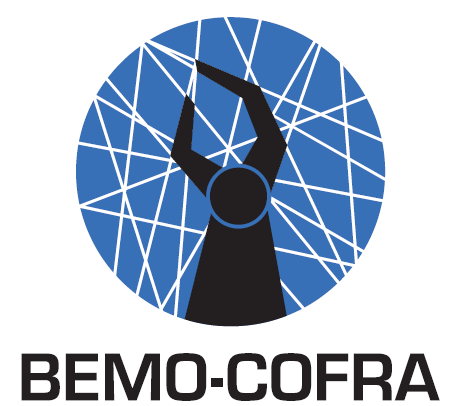
Read the BEMO-COFRA newsletters here:
#1 October 2012
#2 February 2013
#3 October 2013
#4 February 2014

Registered Members Only
Share this
Facebook

The BEMO-COFRA project is a 30-months EU-Brazil cooperative research project started in 2011.
The project is partly funded by the European Commission under the 7th Framework Programme in the area of EU-Brazil Research and Development cooperation under Grant Agreement no. 288133
The Brazilian funding is provided by CNPq Conselho Nacional de Desenvolvimento Científico e Tecnológico

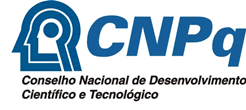
 Impressum
Impressum  Privacy
Privacy
Newsletters
The project is partly funded by the European Commission under the 7th Framework Programme in the area of EU-Brazil Research and Development cooperation under Grant Agreement no. 288133
The Brazilian funding is provided by CNPq Conselho Nacional de Desenvolvimento Científico e Tecnológico

Read the BEMO-COFRA newsletters here:
#1 October 2012
#2 February 2013
#3 October 2013
#4 February 2014
Newsletter Subscription
Registered Members Only
Brazil-Europe - Monitoring and Control Frameworks
The BEMO-COFRA project delivered an innovative, distributed framework for networked monitoring and control of large-scale complex systems. The integration of heterogeneous smart objects, legacy devices and sub-systems will achieve overall systems’ efficiency with respect to energy and raw materials and support holistic management.
The achievements of the project was demonstrated deploying the BEMO-COFRA framework in a Brazilian auto manufacturing plant. The final demonstrator showed a welding robot cooperating with a wireless video camera for augmented accuracy (read more here). Other demonstrators have shown how energy sensors can be deployed to measure energy consumption of each part of the welding process.
The BEMO-COFRA project ended on 28 February 2014. "; closeside(); openside("Brasil-Europa - Controle e Monitoramento em Rede"); echo "O BEMO-COFRA visa desenvolver - em uma cooperação Brasil-Europa - um framework inovador que permite o monitoramento e controle em rede de sistemas complexos de larga escala.
A integração de objetos inteligentes heterogêneos, dispositivos legados e sub-sistemas irão atingir a eficiência global do sistema no que diz respeito à energia e matérias-primas e permitir a gestão holística. Os resultados do projeto serão demonstrados através da instalação do framework BEMO-COFRA em uma fábrica no Brasil.
O projeto BEMO-COFRA terminou em 28 de Fevereiro de 2014.
Successful end to the BEMO-COFRA project
In the final stage of the project, the development tools and the final prototype were demonstrated in the final review and evaluated by the industrial partners. A video has been produced, demonstrating the BEMO-COFRA final scenario where the BEMOCOFRA platform enables a welding line to process two different kinds of roof types in a production batch.
The demonstration of the scenario also served as a validation of the BEMO-COFRA platform. In addition, a usability evaluation was carried out with the purpose of assessing the users experience with respect to using the BEMO-COFRA platform. To this end, a User Experience Questionnaire (UEQ) as well as a questionnaire were used. The results from the user evaluation show that users are quite attracted with the novel concepts developed in the project and the industrial partners have shown interest to extend the results further.
BEMO-COFRA has been quoted as one of the success stories from the first EU-Brazil Call and a follow up project, IMPReSS, has been acquired in Call 2 to maintain a good EU-Brazil cooperation.
Video demonstrating increased flexibility in car production
In the future, the production of cars will be more flexible, offering on-demand and customised production capabilities. BEMO-COFRA has produced a video which demonstrates this scenario, enabling a welding line to process two different kinds of roof types in a production batch.
The BEMO-COFRA project is rapidly coming to an end
BEMO-COFRA is about to enter its 30th and thereby final month and project partners are currently busy with the final implementation, integration and validation activities. In addition, the consortium is in the process of finishing the final outstanding deliverables and writing more scientific papers, which will be submitted to future relevant conferences and other events. The 4th and final project newsletter is also currently under production and will released at end of February 2014. Registered members will receive a copy of the newsletter directly in their inbox. To register for free click here.
The final stages of integration
During the final month of the project, the technical partners will work together remotely on various integration aspects. Partners ISMB & VTT are currently integrating the wireless sensor module with the network management module, thereby enabling the supervision and control of the wireless network. This integration work will make it possible to see how many nodes are connected, the signal strength of each node, and to control e.g. how often sensor values should be sent.
Partners FIT and COMAU are also working together remotely on a different integration aspect. They have built an iPad App for monitoring a production cell which will be connected with the real robot and other sensors (e.g. thermometer, power sensor, clamp sensor, etc.) through an industrial middleware called OPC. They will then combine the wireless sensors and the industrial sensors using the LinkSmart middleware. The wireless sensor is going to be used for measuring the vibration of the SKID (the SKID carries the car into the production cell) since too much vibration will normally place the SKID in an incorrect position. The wireless sensor will also be used for checking if the clamps are fully locked or if they jammed for some reason.
Partners FIT and COMAU are also working together remotely on a different integration aspect. They have built an iPad App for monitoring a production cell which will be connected with the real robot and other sensors (e.g. thermometer, power sensor, clamp sensor, etc.) through an industrial middleware called OPC. They will then combine the wireless sensors and the industrial sensors using the LinkSmart middleware. The wireless sensor is going to be used for measuring the vibration of the SKID (the SKID carries the car into the production cell) since too much vibration will normally place the SKID in an incorrect position. The wireless sensor will also be used for checking if the clamps are fully locked or if they jammed for some reason.
Integration meeting on wireless sensor and actor networks
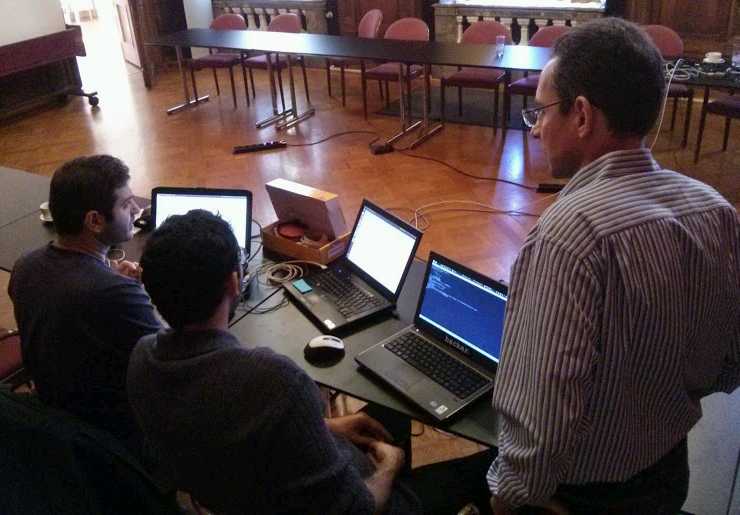 During a consortium meeting in Bonn on 23-25th September 2013, technical partners organised an integration session to conclude the architecture of the multi-radio Wireless Sensor and Actor Network (WSAN). VTT, ISMB, UFPE and UFAM managed to integrate the WSAN gateway, the multi-radio nodes, and the network management module that is implemented using Simple Network Management Protocol (SNMP).
During a consortium meeting in Bonn on 23-25th September 2013, technical partners organised an integration session to conclude the architecture of the multi-radio Wireless Sensor and Actor Network (WSAN). VTT, ISMB, UFPE and UFAM managed to integrate the WSAN gateway, the multi-radio nodes, and the network management module that is implemented using Simple Network Management Protocol (SNMP). BEMO-COFRA at ETFA 2013
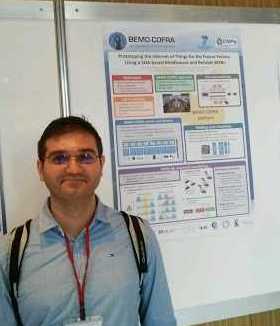 Partners FIT and ISMB had a paper accepted for presentation with the title Prototyping the Internet of Things Technology for the Future Factory Using Publish-Subscribe Middleware. ETFA is the prime and largest IEEE-sponsored event dedicated to factory automation and emerging technologies in industrial automation.
Partners FIT and ISMB had a paper accepted for presentation with the title Prototyping the Internet of Things Technology for the Future Factory Using Publish-Subscribe Middleware. ETFA is the prime and largest IEEE-sponsored event dedicated to factory automation and emerging technologies in industrial automation. Presentation at Brazil Automation 2013
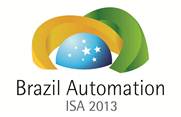 BEMO-COFRA will be presented at the 17th International Congress and Exhibition of Automation, Instrumentation and Systems in Sao Paulo from 5-7 November 2013.
BEMO-COFRA will be presented at the 17th International Congress and Exhibition of Automation, Instrumentation and Systems in Sao Paulo from 5-7 November 2013. Cooperation with KEPWARE
 The BEMO-COFRA consortium is delighted to announce the cooperation with KEPWARE, a leading OPC software manufacturer. KEPWARE is providing a one year free license of their Manufacturing Suite OPC server to support research activities in the project.
The BEMO-COFRA consortium is delighted to announce the cooperation with KEPWARE, a leading OPC software manufacturer. KEPWARE is providing a one year free license of their Manufacturing Suite OPC server to support research activities in the project. The BEMO-COFRA Network Architecture has been refined
Recent development work on the BEMO-COFRA network architecture has resulted in significant improvements to the initially proposed architecture. In accordance with the evolutionary requirement engineering, specification and design methodology used in the project development work, the network architecture has now been refined to comply with the updated requirements resulting from the first year requirement engineering process.
The BEMO-COFRA Validation Activities
The BEMO-COFRA project has defined a validation framework in order to ensure that a uniform validation methodology is used across the different technical work packages. The validation framework provides a well-described methodology to serve as a baseline on how, when and by whom validation is going to take place. Based on the validation framework, each technical work package has defined a concrete set of validation and testing activities specifying what will be validation, how and when. The individual work packages thus focus on testing and validating specific components that make up the final platform.
The final overall validation of the BEMO-COFRA platform will be carried out by deploying the BEMO-COFRA platform in a test bed provided by COMAU, Brazil.
The final overall validation of the BEMO-COFRA platform will be carried out by deploying the BEMO-COFRA platform in a test bed provided by COMAU, Brazil.
BEMO-COFRA demonstration at Hannover Messe, April 2013
 At HANNOVER MESSE, April 8 – 12, 2013, Fraunhofer FIT demonstrated the monitoring system, using a production line in the automobile industry as an example. The focus point of the FIT stand was to demonstrate the process oriented energy control and optimization that is being developed in the BEMO-COFRA project.
At HANNOVER MESSE, April 8 – 12, 2013, Fraunhofer FIT demonstrated the monitoring system, using a production line in the automobile industry as an example. The focus point of the FIT stand was to demonstrate the process oriented energy control and optimization that is being developed in the BEMO-COFRA project. HANNOVER MESSE is valued by companies and organizations around the globe as the world's premier industrial technology showcase with its clear focus on core technologies and services that enable industrial production, innovation and efficiency.
Page 1 of 2: 12


